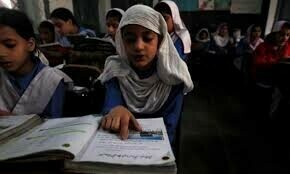 |
| Punjab plans to hire over 100 experts in different fields and make them work at the provincial capital to guide farmers who call the service centre with problems |
Punjab has started moving quickly to implement its budget strategy, putting extension services under one roof, creating what it calls an agriculture hub that would provide one-window access to farmers for solving all their soil and crop-related problems. And, as planned, information technology is being cast in the lead role.
All high-tech words — global positioning system (GPS), interactive voice response (IVR) and android technology — have become part of departmental lexicon. But the unknown is how traditional farmers will respond to such modern initiatives.
According to the first strategy meeting, as partially released to the media, Punjab plans to bring all its projects — fertiliser calculator, agri-baithak (local meeting) and smart agriculture etc — under the one umbrella project and leads everything from there. Even donor-driven projects will become part of this revamped extension services.
Under this project, the department would create an IT hub, possibly at Lahore, which would be linked to soil testing labs that would provide knowledge of soil health. It would also be linked to fertiliser calculator, which would calculate requirements of the soil right down to kilogrammes and grams so that new concept of grammage in fertiliser could be introduced instead of bags applications. Punjab also plans to hire over 100 experts of different fields and make them work at the centre to provide expert guidelines to farmers who call the centre with a problem.
The entire field force of the department would be linked to the centre through Global Positioning System (GPS) and every call, received in the centre, would be communicated to the official concerned, who would respond quickly, and go to the farmers’ doorsteps if need be.
Equipped with all gadgets of information technology, he would report back to the centre with or without the problem. If he cannot solve that problem locally, he would take advice from the experts and duly guide the farmer. That is how the plan goes and sounds formidably modern and harbinger of a paradigm shift in farm practices of agriculture.
But, a word of caution is perhaps required here. Punjab must not forget that it’s the entire programme is for a community, which is supposed to mostly illiterate and socially orthodox. Providing them with complicated solutions like interactive voice response (IVR), however attractive on papers, may not work as smoothly as being thought of now. The crucial question, which needs to be answered before moving forwards, is: “Does it gel well with the social realities of the rural Punjab?”
The province had to abandon a number of projects, which did not go along with social sensitivities of the rural life. The bio-gas tubewells is the latest causality. It simply failed to take off despite being launched with fanfare.
Punjab plans to hire over 100 experts in different fields and make them work at the provincial capital to guide farmers who call the service centre with problems
The department is falling prey to high-tech solutions to multiple problems, and of a community, apparently not well prepared for it.
Its plan to create a central call centre at Lahore and lead the 5.2m farming families across eight ecological zones and nine administrative divisions from one call centre also sounds too ambitious to be practical.
Transporting over 100 experts from the field and making them sit at Lahore also means huge cost and, most crucially, de-linking them from their areas, where new problems might be emerging almost on seasonal basis.
Expecting them to keep abreast of fast emerging local problems and solve them from a distance may not be easy to work. All these ecological zones have their peculiar problems, which are undergoing transformation because of climate change. The last minute drop in wheat yield this year explains the nature and extent of the problem.
Another layer of the problem would be that there is hardly any cellular company, which covers the entire province — 100pc.
Signal problems are frequent, which could defeat the purpose of such a project. Given all these issues, why not create those centres at district level, or at least, ecological zones’ levels?
The geographical realities of the province also demand such approach. Most of Punjab is already divided in cotton zone, rice belt, mango cluster and kinnow concentration. Punjab is now, by design, developing the Photohar region into an olive and grapes valley. Only wheat crop overlaps all those areas, otherwise all other major crops (cash, food and fruits) are being grown in particular areas.
Published in Dawn, Economic & Business ,July 13th, 2015
On a mobile phone? Get the Dawn Mobile App: Apple Store | Google Play













































